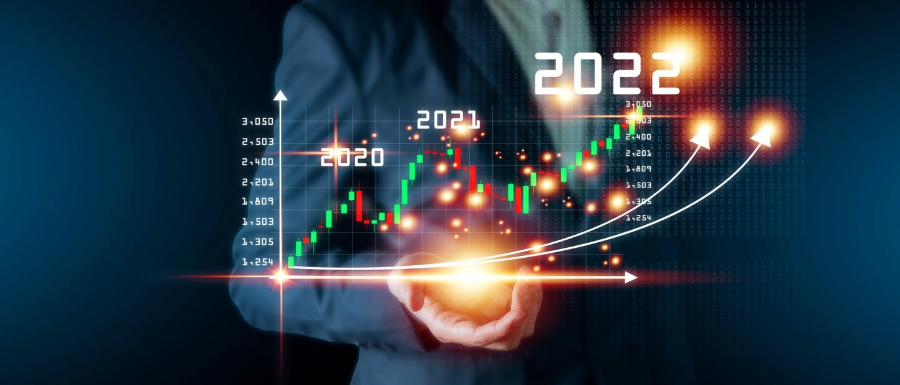Stock market prediction using AI
The stock market, with its inherent complexity and dynamic nature, has always been a challenging arena for investors. Traditional methods of analysis often fall short of capturing the intricate patterns and rapid shifts in market sentiment. In recent years, there has been a surge in interest and investment in leveraging artificial intelligence (AI) to predict stock market movements. AI, with its ability to process vast amounts of data, identify patterns, and adapt to changing conditions, holds the promise of more accurate and timely predictions. In this article, we explore how AI is transforming stock market prediction and the potential benefits it brings to investors.
Data-driven Approach
Artificial Intelligence (AI) is intricately intertwined with data, drawing extensively from the expansive information pool offered by the stock market. AI algorithms meticulously analyze diverse datasets, encompassing historical stock prices, corporate financials, market patterns, news articles, and sentiment expressed on social media. In these datasets, machine learning algorithms, a specific subset of artificial intelligence, excel at identifying patterns and connections that may elude human analysts. The primary objective of AI models is to enhance understanding of the market by assimilating a multitude of factors simultaneously, striving to provide a more comprehensive and nuanced perspective.
Algorithmic Trading
Algorithmic trading is one of the most important uses of AI in the stock market. Traders carry out algorithms according to preset standards and trends found by AI models. These algorithms can conduct trades in milliseconds because they can digest information at speeds well above human capabilities. As a type of algorithmic trading, high-frequency trading uses artificial intelligence (AI) to seize short-lived market opportunities and make snap judgments on which stocks to purchase or sell.
Sentiment Analysis
AI’s ability to analyze sentiment in news articles, social media, and financial reports can be a game-changer in predicting stock movements. Natural language processing (NLP) algorithms can assess the sentiment behind news headlines and social media discussions related to specific stocks. For news and tweet data, they are first sent to the sentiment analysis test section to select the most appropriate technology for applying sentiment analysis respectively. Then both generated weighted scores will be summed up in given intervals and apply holiday effect processing. Finally, summed news and tweets scores are combined according to intervals as input features.
Predictive Analytics
Predictive analytics, powered by AI, aims to forecast future stock prices based on historical data and current market conditions. Machine learning models, such as recurrent neural networks (RNNs) and long short-term memory (LSTM) networks, are capable of learning from past patterns and adapting to changing market dynamics. These models can factor in a multitude of variables, including economic indicators, interest rates, and geopolitical events, to generate predictions that go beyond traditional statistical models.
Risk Management
Artificial Intelligence (AI) holds a pivotal position in bolstering risk management strategies for investors. Through constant vigilance over market conditions and the evaluation of potential risks, AI systems serve as invaluable tools, offering timely warnings and alerts to investors. Leveraging portfolio optimization algorithms, investors can craft portfolios that strike a delicate balance between risk and return, tailored to their specific risk tolerance and investment objectives. This proactive approach to risk management not only aids in the mitigation of potential losses but also contributes to an overall enhancement in the performance of investment portfolios.
Challenges and Considerations
AI offers substantial potential for predicting stock market movements, but it comes with its share of hurdles. Challenges arise from the intricate nature of financial markets, the unpredictability of specific events, and the potential for models to be overly tailored to historical data, leading to overfitting. Additionally, ethical considerations demand careful scrutiny, emphasizing the responsible deployment of AI in financial markets.
Conclusion
Artificial intelligence is reshaping the landscape of stock market prediction, offering investors powerful tools to navigate the complexities of financial markets. By leveraging data-driven insights, algorithmic trading, sentiment analysis, predictive analytics, and risk management, AI has the potential to enhance decision-making and improve investment outcomes. However, it is crucial to approach AI predictions with caution, understanding their limitations and continuously refining models to adapt to changing market conditions. As technology continues to evolve, the integration of AI into stock market analysis will likely become even more prevalent, shaping the future of investment strategies.
Source:
- https://www.bitsathy.ac.in/blog/generative-ai-3/
- https://digitalcommons.unl.edu/cgi/viewcontent.cgi?article=9965&context=libphilprac
- https://vakilsearch.com/blog/how-artificial-intelligence-helps-to-predict-the-stock-market/

